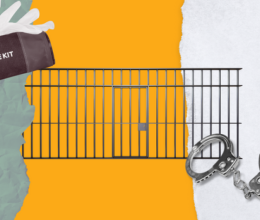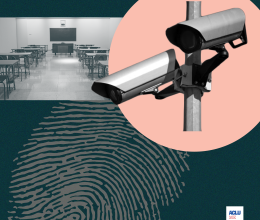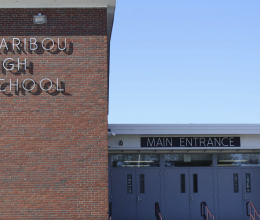Each Friday, we’ll bring you updates on the latest civil liberties news from Maine and the nation.
Drone Memo Is Out
On Monday morning, the U.S. Court of Appeals for the Second Circuit released a memo from July 16, 2010, authorizing the targeted killing of Anwar al-Aulaqi, a U.S. citizen, in Yemen. The ACLU has been fighting for the memo since we first asked for it in a Freedom of Information Act request, which was submitted in October 2011. While this is a positive step towards greater transparency, the memo still does not answer many key questions about the government’s claimed authority to kill U.S. citizens outside of active battlefields. Read this article to find out more about what the ACLU believes the memo fails to address.
No Fly-List? Hey, That’s Unconstitutional!
On Tuesday, the United States District Court for the District of Oregon stuck down the secret government watchlist known as the No Fly List. The No Fly list is stigmatizing, and can prevent people from obtaining jobs, separate them from their families, and hinder their religious obligations. Worse yet, the government has a policy of keeping the list private, even after a person has been banned from boarding. In agreement with the ACLU, the court stated that the “redress” procedures that the U.S. government provides fall “short of satisfying the requirements of due process” and thus violates the Constitution. This ruling benefits people who have been wrongly placed on the No Fly List, and will require the government to reevaluate its watchlist system.
Check out the effects of the No Fly List here.
You’re Gonna Need A Warrant For That.
On Wednesday, the U.S. Supreme Court unanimously ruled that police are required to obtain a warrant for cell phone searches by Police. Steven R. Shapiro, the national legal director of the ACLU, had this reaction:
“By recognizing that the digital revolution has transformed our expectations of privacy, today’s decision is itself revolutionary and will help to protect the privacy rights of all Americans. We have entered a new world but, as the court today recognized, our old values still apply and limit the government’s ability to rummage through the intimate details of our private lives.”
Chief Justice John Roberts delivered the opinion and it was joined in full by Justices Antonin Scalia, Anthony Kennedy, Clarence Thomas, Ruth Bader Ginsburg, Stephen Breyer, Sonia Sotomayor and Elena Kagan.
Wedding Bells to Ring in Indiana and Utah
On Wednesday, a federal judge struck down Indiana’s ban on same-sex marriage, making it the 20thstate in the nation where gay and lesbian couples can wed. Ken Falk, ACLU of Indiana legal director, said “We are ecstatic that the court recognized what we have always maintained: That there is simply no justification for treating same-sex couples any differently than other loving couples of opposite genders.” Just hours later, in Utah, a federal appeals court declared Utah’s ban on same-sex marriage unconstitutional. “This is a proud day for everybody in the state of Utah, and everybody across the country, who supports marriage equality,” said John Mejia, legal director of the ACLU of Utah, which submitted an amicus brief in support of the plaintiffs. “Though there is still much to do, the journey to ensuring the freedom to marry for all just got a huge boost with today’s decision.
Indiana and Utah are two of the most conservative states in the nation, adding even more significance to Wednesday’s rulings.








